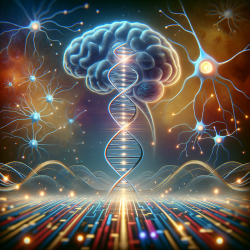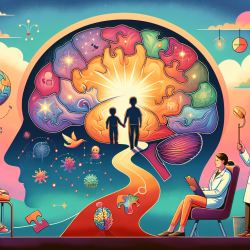The recent study titled "MSL2 variants lead to a neurodevelopmental syndrome with lack of coordination, epilepsy, specific dysmorphisms, and a distinct episignature" provides groundbreaking insights into the genetic underpinnings of certain neurodevelopmental disorders (NDDs). This research is crucial for practitioners aiming to refine their diagnostic and therapeutic approaches.
Key Findings from the Research
The study identifies 25 individuals with heterozygous de novo variants in the MSL2 gene, which is part of the male-specific lethal (MSL) complex responsible for histone acetylation. These variants are linked to NDD phenotypes such as global developmental delay, intellectual disability, hypotonia, motor issues like coordination problems, feeding difficulties, and gait disturbances. Additionally, dysmorphisms and behavioral conditions like autism spectrum disorder (ASD) were observed.
A significant outcome of this research is the establishment of a sensitive and specific DNA methylation episignature as a molecular biomarker for MSL2-related disorders. This episignature can aid in the diagnosis and classification of ambiguous genetic findings.
Implications for Practitioners
For practitioners in the field of special education and therapy, these findings offer several avenues to enhance practice:
- Improved Diagnosis: The identification of a distinct episignature associated with MSL2 variants enables more accurate diagnosis of related NDDs. Practitioners can leverage this biomarker to differentiate between similar conditions.
- Personalized Interventions: Understanding the specific genetic and epigenetic mechanisms underlying MSL2-related disorders allows for more tailored therapeutic interventions. This personalized approach can improve outcomes for affected individuals.
- Collaboration with Geneticists: Practitioners should consider collaborating with geneticists to integrate genetic testing into their diagnostic processes. This collaboration can enhance understanding and management of complex cases.
- Continuing Education: Engaging in ongoing education about genetic research and its implications for neurodevelopmental disorders is essential. Attending conferences, webinars, and workshops can keep practitioners informed about the latest advancements.
Encouraging Further Research
The study highlights the need for further research into the molecular mechanisms of MSL2 variants. Practitioners can contribute to this effort by participating in clinical studies or collaborating with research institutions. Additionally, sharing clinical observations and outcomes can provide valuable data to support ongoing research efforts.
Conclusion
The insights gained from this study underscore the importance of integrating genetic findings into clinical practice. By doing so, practitioners can enhance their ability to diagnose and treat neurodevelopmental disorders more effectively. As our understanding of genetics continues to evolve, staying informed and adaptable will be key to providing optimal care for individuals with these complex conditions.
To read the original research paper, please follow this link: MSL2 variants lead to a neurodevelopmental syndrome with lack of coordination, epilepsy, specific dysmorphisms, and a distinct episignature.










